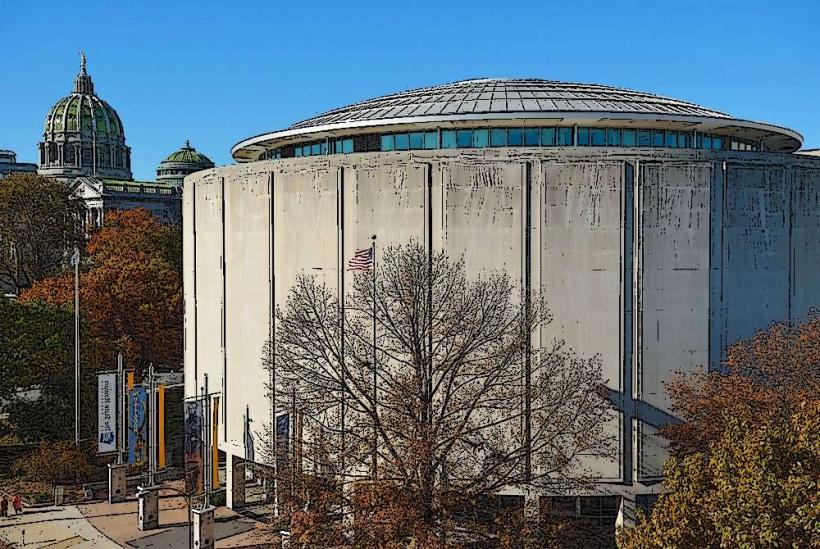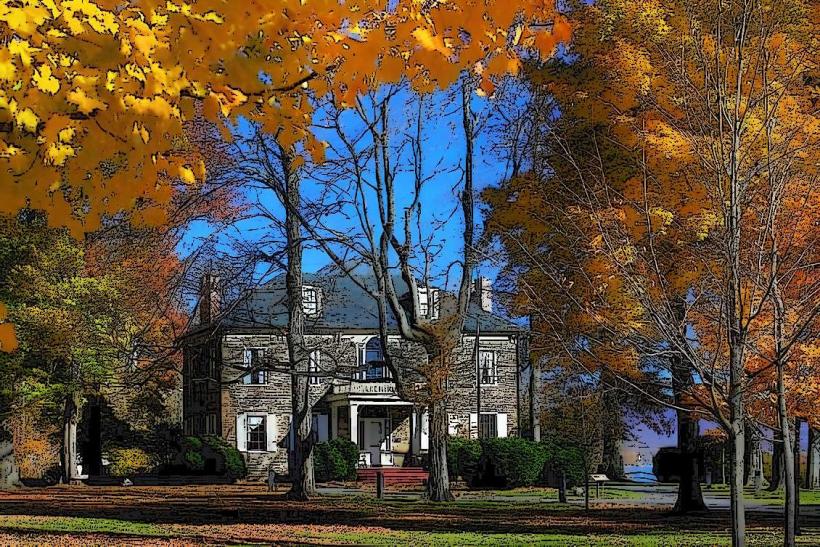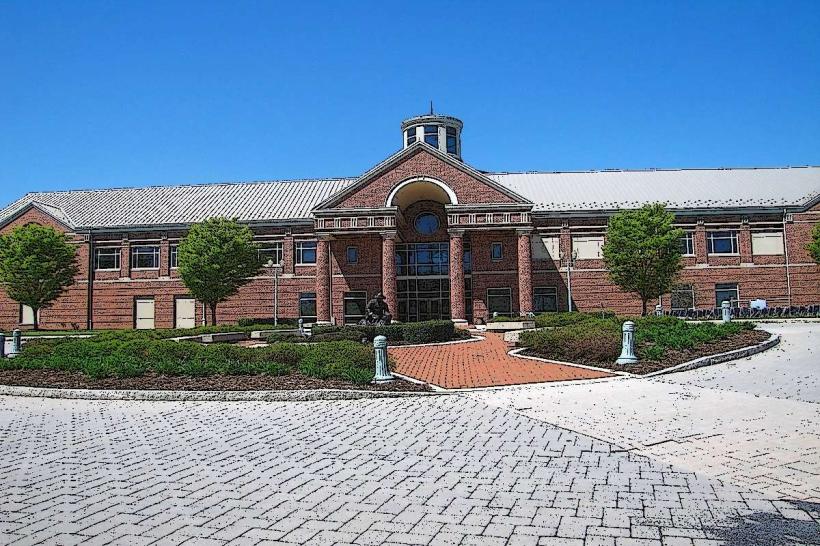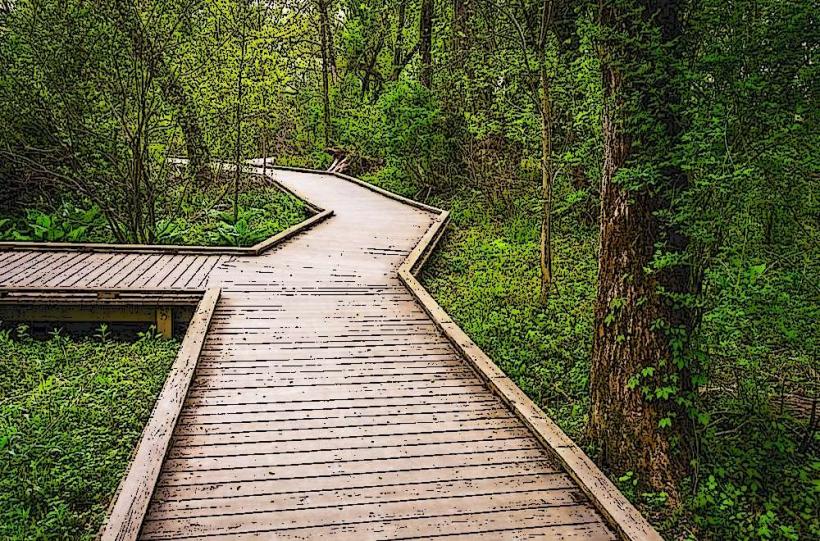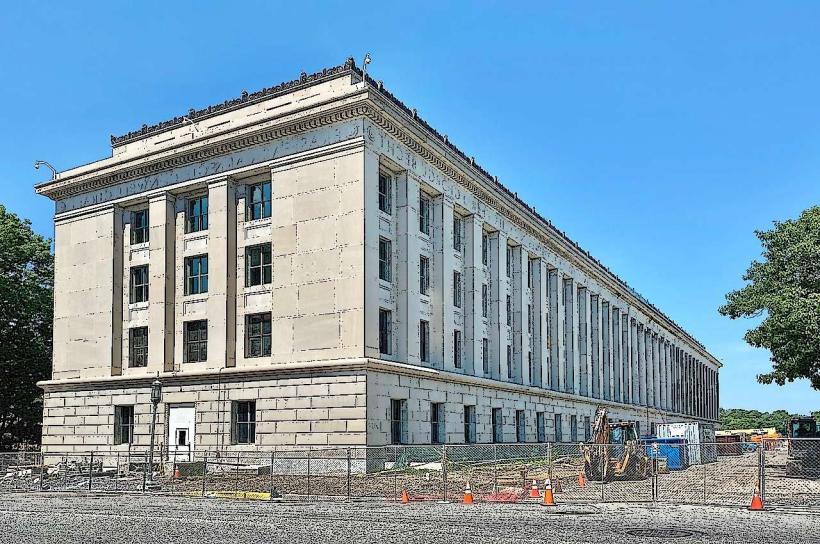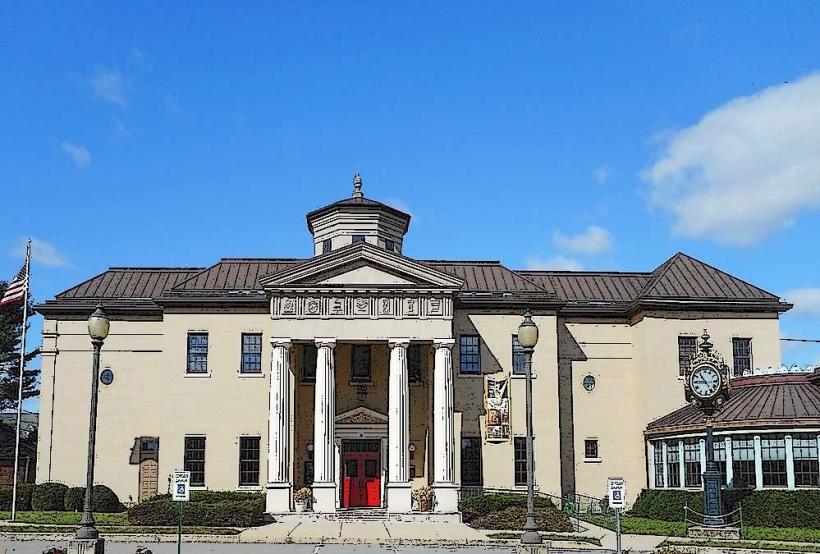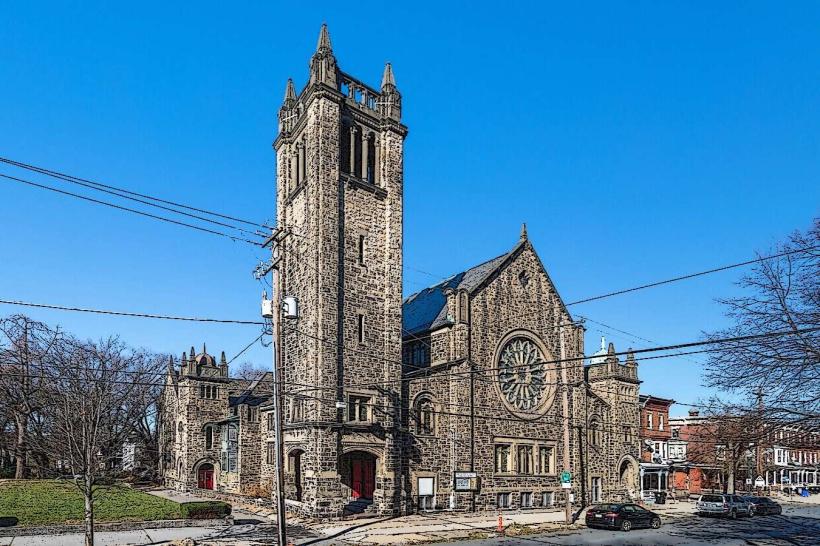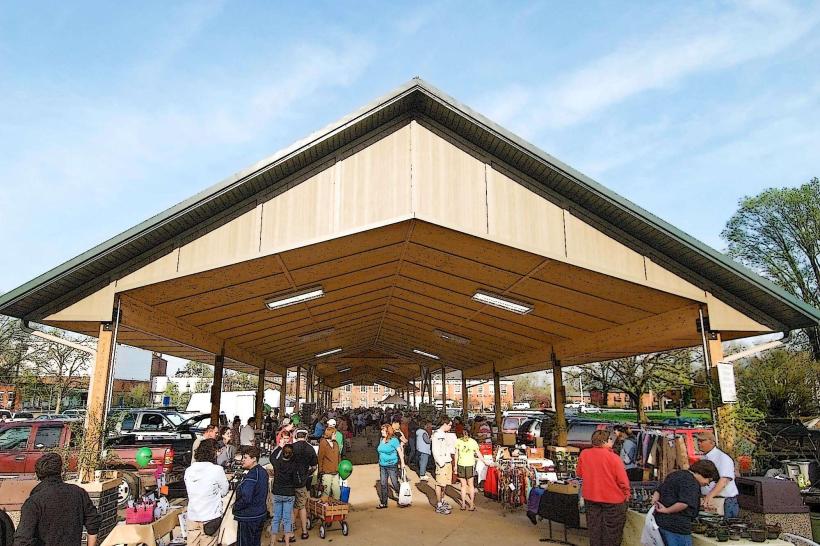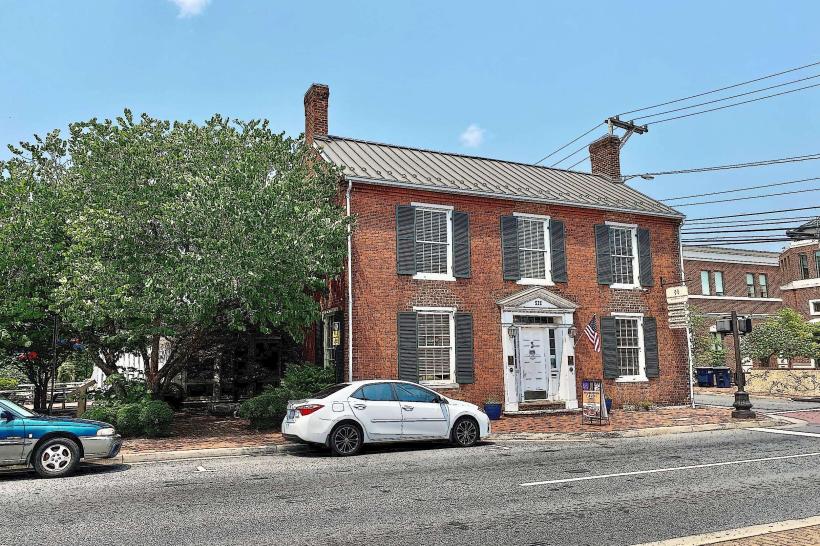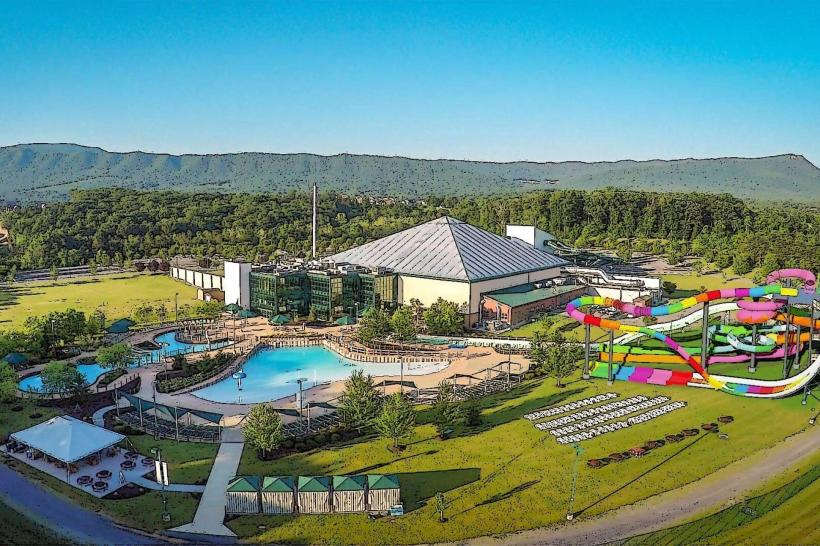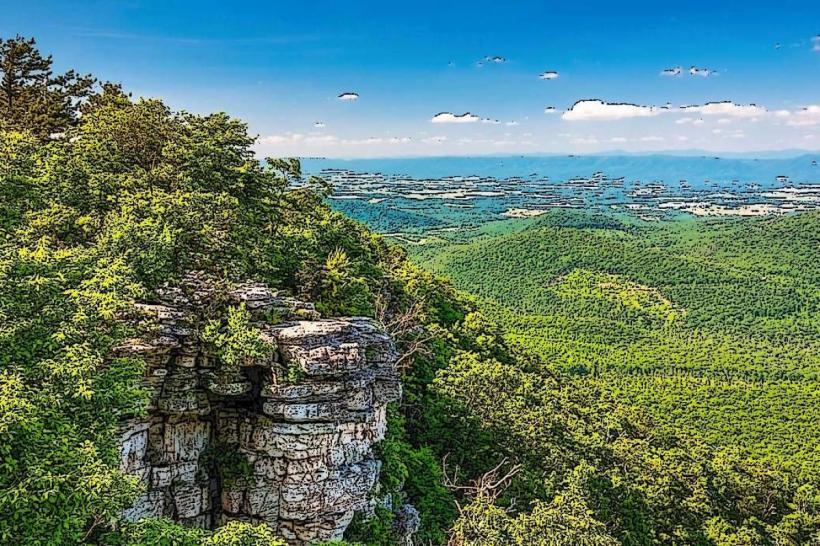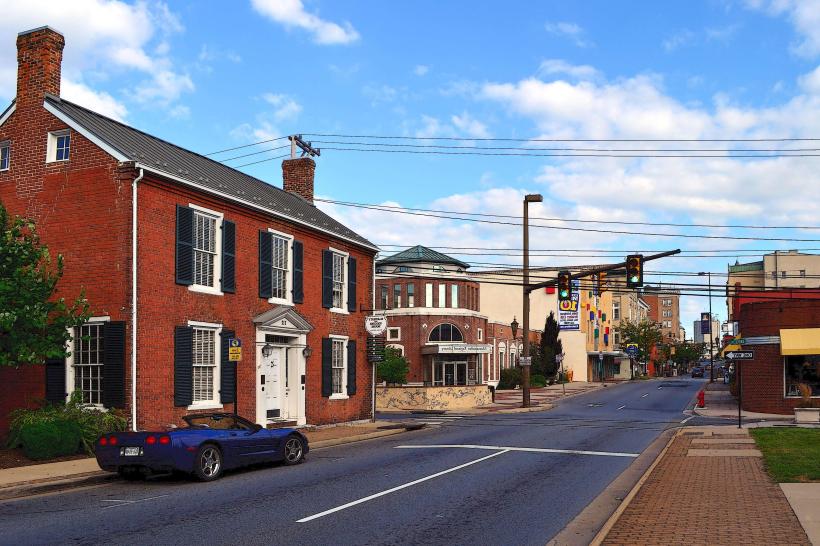Information
Landmark: Edith J. Carrier ArboretumCity: Harrisburg
Country: USA Virginia
Continent: North America
Edith J. Carrier Arboretum, Harrisburg, USA Virginia, North America
The Edith J. Carrier Arboretum is a distinguished 125-acre natural sanctuary and botanical garden located on the campus of James Madison University (JMU) in Harrisonburg, Virginia. Established in 1989 and officially named in 1998 in honor of Edith J. Carrier-the wife of JMU President Emeritus Ronald E. Carrier-the arboretum represents a vital green space dedicated to the preservation of native plant species, environmental education, research, and public enjoyment. It serves as a living laboratory and recreational area for students, faculty, visitors, and the broader community.
Location and Size
The arboretum is nestled within the university grounds at 780 University Boulevard, easily accessible to both the campus community and the public. Spanning approximately 125 acres, the arboretum offers a significant expanse of preserved woodland, gardens, wetlands, and natural habitats, representing a microcosm of the regional Appalachian environment.
Natural Habitats and Plant Collections
The Edith J. Carrier Arboretum is renowned for its rich diversity of ecosystems and native plant species. The landscape includes:
Oak-Hickory Forests: Dominated by mature oaks and hickories, these woodlands form the backbone of the arboretum’s habitat, supporting a variety of wildlife and providing seasonal color changes throughout the year.
Lowland Swales and Wetlands: These wetter areas contain specialized plant species adapted to moist soil conditions and provide important breeding grounds and food sources for amphibians, insects, and birds.
Pond and Aquatic Habitat: A central pond offers a peaceful focal point and supports aquatic plants and a rich diversity of insect life, including various species of dragonflies and damselflies.
Botanical Gardens and Wildflower Areas: The arboretum features curated garden sections with native wildflowers and other plants, showcasing species such as Virginia bluebells, bloodroot, trout lily, spring beauty, wild larkspur, true geranium, and numerous trillium species. These plants are particularly spectacular in early spring when the forest floor bursts with color.
The arboretum also preserves some rare and endangered native plants, including the Betula uber (round-leaf birch), a species that is among the rarest trees in North America, highlighting the arboretum’s role in conservation.
Trails and Accessibility
The arboretum offers over 3 miles of maintained walking trails that wind through varied habitats, making it an inviting destination for hikers, nature lovers, bird watchers, photographers, and families. The trails are designed to be accessible for visitors of all ages and abilities, with clearly marked paths and interpretive signage that educates visitors about the plants, wildlife, and ecological importance of the area.
Wildlife and Ecological Significance
Beyond its botanical treasures, the arboretum is a vibrant ecosystem supporting diverse fauna. Birds, mammals, amphibians, reptiles, and countless insects inhabit its forests, wetlands, and meadows. Particularly notable are the numerous pollinators that thrive on the abundant wildflowers, including butterflies, bees, and various dragonfly species such as the eastern pond hawk, widow skimmer, common whitetail, and eastern amberwing.
This rich biodiversity contributes to local ecological health, making the arboretum a critical sanctuary within an urbanized region.
Educational and Community Role
The Edith J. Carrier Arboretum functions as an outdoor classroom and research facility, playing an important role in the academic life of James Madison University as well as in community environmental education. It hosts a wide range of programs:
Educational Programs and Workshops: For K-12 schools, university students, and the general public, focusing on botany, ecology, conservation, and sustainable practices.
Research Opportunities: The arboretum supports scientific studies in plant biology, ecology, and environmental science, offering students hands-on experience in field research.
Community Engagement: The arboretum frequently organizes volunteer days, guided nature walks, and seasonal events, encouraging local residents to connect with nature.
Special Events and Weddings: The serene and scenic environment has made the arboretum a popular venue for weddings, with over 90 ceremonies held there since 2001. Its natural beauty provides a unique setting for personal celebrations and gatherings.
Visitor Experience and Amenities
Visitors to the Edith J. Carrier Arboretum can enjoy:
Free public access, open daily from dawn to dusk, allowing year-round exploration.
Interpretive Signage: Educational signs along trails provide information about the local flora, fauna, and ecological processes.
Guided Tours and Events: Available seasonally or by appointment to enhance visitor understanding and enjoyment.
Natural Beauty: The arboretum offers striking seasonal displays-from spring wildflowers and vibrant fall foliage to tranquil winter landscapes.
Peaceful Recreation: The arboretum’s trails and natural areas provide a quiet escape for walking, birdwatching, photography, and relaxation within a university setting.
Contact and Further Information
Address: 780 University Boulevard, Harrisonburg, VA 22807
Phone: (540) 568-3194
Hours: Open daily from dawn until dusk
Admission: Free of charge to the public
Website: Hosted by James Madison University, the arboretum’s website provides detailed visitor information, event calendars, and educational resources.
Summary
The Edith J. Carrier Arboretum is a vital ecological and cultural asset in Harrisonburg, blending conservation, education, and recreation across a diverse 125-acre landscape. Its preservation of native Appalachian flora and fauna, coupled with its role as a hub for learning and community engagement, make it an essential destination for those interested in natural history, environmental stewardship, and peaceful outdoor experiences. It stands as a testament to James Madison University’s commitment to sustainability and regional heritage, welcoming visitors to explore, discover, and appreciate the rich natural world of the Shenandoah Valley.




